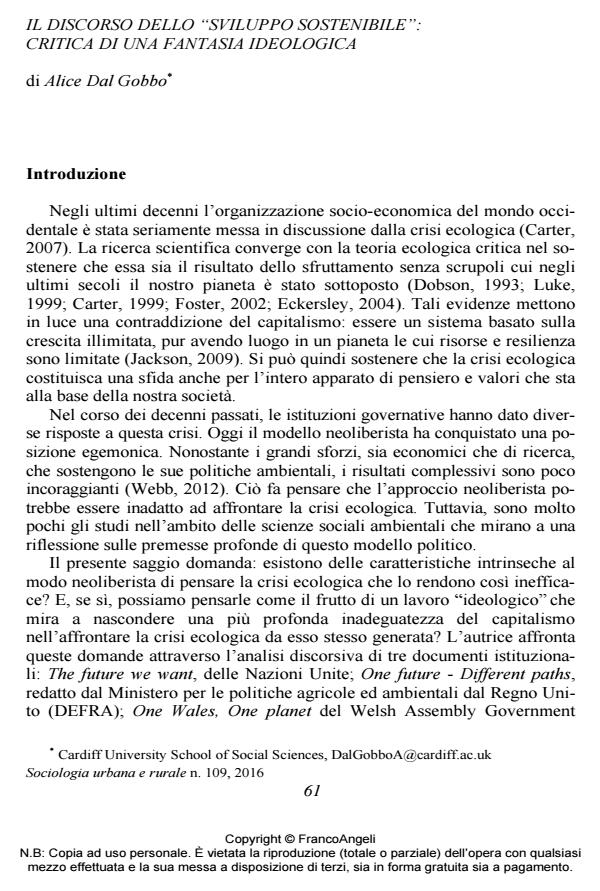Il discorso dello "sviluppo sostenibile": critica di una fantasia ideologica
Titolo Rivista SOCIOLOGIA URBANA E RURALE
Autori/Curatori Alice Dal Gobbo
Anno di pubblicazione 2016 Fascicolo 2016/109
Lingua Italiano Numero pagine 15 P. 61-75 Dimensione file 76 KB
DOI 10.3280/SUR2016-109005
Il DOI è il codice a barre della proprietà intellettuale: per saperne di più
clicca qui
Qui sotto puoi vedere in anteprima la prima pagina di questo articolo.
Se questo articolo ti interessa, lo puoi acquistare (e scaricare in formato pdf) seguendo le facili indicazioni per acquistare il download credit. Acquista Download Credits per scaricare questo Articolo in formato PDF

FrancoAngeli è membro della Publishers International Linking Association, Inc (PILA)associazione indipendente e non profit per facilitare (attraverso i servizi tecnologici implementati da CrossRef.org) l’accesso degli studiosi ai contenuti digitali nelle pubblicazioni professionali e scientifiche
La crisi ecologica mette in discussione i sistemi economico, sociale e politico occidentali. Le politiche neoliberiste oggi egemoni non sembrano capaci di implementare misure adeguate alla sua portata. L’autrice delinea i punti salienti di uno studio critico portato avanti tramite il metodo della Lacanian Discourse Analysis su tre documenti di politica ambientale. Propone che lo “sviluppo sostenibile” abbia funzione di fantasia ideologica: oscura le contraddizioni del sistema per perpetuarlo.
Parole chiave:Crisi ecologica, politiche ambientali, critica, neoliberismo, sviluppo sostenibile, fantasia ideologica
- Economic Systems and Human Rights Margherita Ciervo, pp.211 (ISBN:978-3-031-72865-5)
Alice Dal Gobbo, Il discorso dello "sviluppo sostenibile": critica di una fantasia ideologica in "SOCIOLOGIA URBANA E RURALE" 109/2016, pp 61-75, DOI: 10.3280/SUR2016-109005